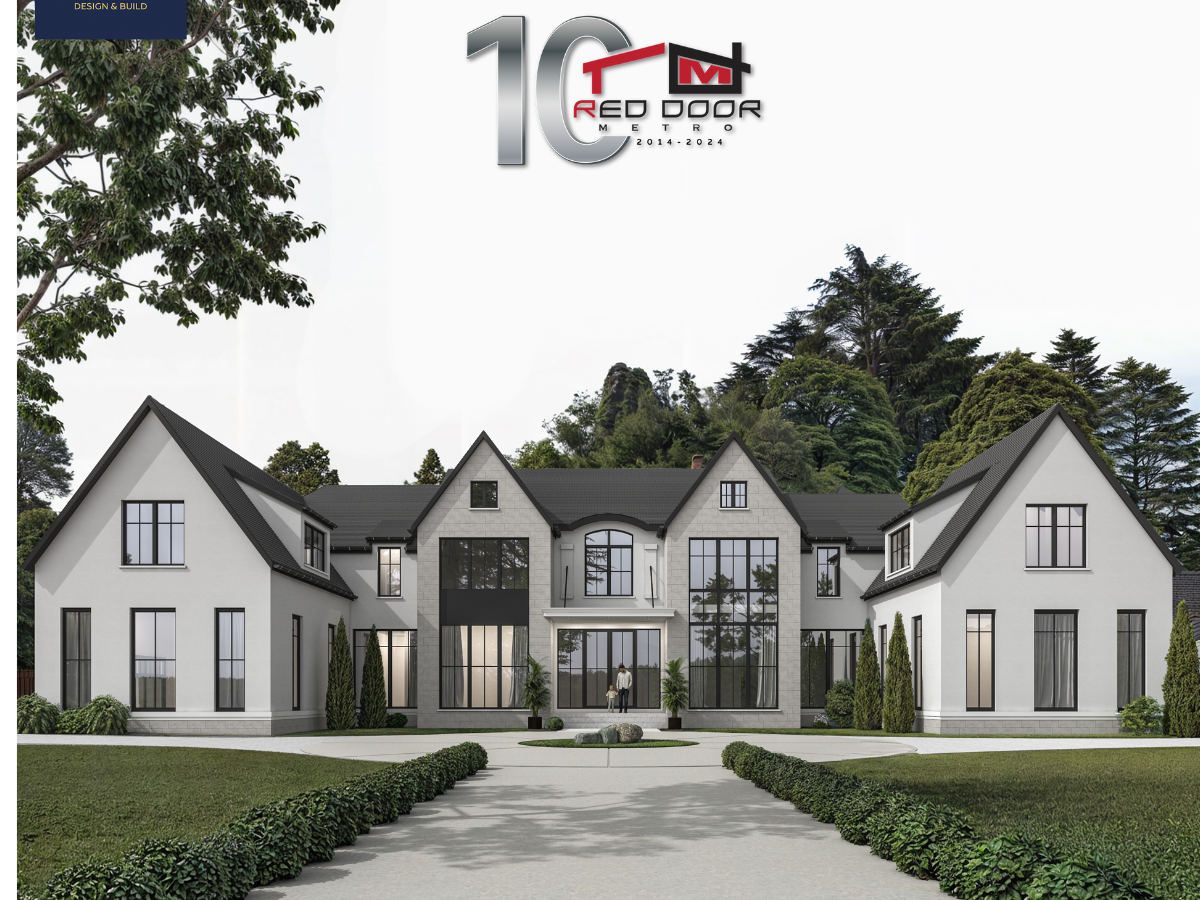
Ever looked at a massive house and thought, “Is that a mansion?” You’re not alone! The word “mansion” gets thrown around a lot, especially on TV shows, real estate listings, or when people talk about dream homes. But what really makes a house a mansion?
Let’s break it down in simple terms. Here’s your no-fluff guide to understanding what qualifies a house as a mansion — and what sets it apart from just a really nice or big home.
First Things First: What Is a Mansion?
A mansion is more than just a big house. It’s a home that is luxurious, expansive, and often custom-designed. Think of it as the top-tier level of residential living. These homes are usually designed with elegance, comfort, and status in mind — they don’t just serve basic living needs, they go far beyond that.
Size Matters: How Big Is a Mansion?
One of the easiest ways to identify a mansion is by its square footage. Most real estate experts agree that:
🔹 A mansion typically starts at 5,000 to 8,000 square feet of living space (and up).
But size alone isn’t everything. You can have a big house that isn’t quite a mansion if it lacks other key features we’ll talk about next.
It’s All in the Details: Key Features of a Mansion
Here’s what usually separates a mansion from an ordinary house:
1. Luxury Amenities
Mansions often include high-end features like:
-
Home theaters
-
Wine cellars
-
Saunas or steam rooms
-
Private gyms
-
Indoor pools or spas
-
Elevator access between floors
-
Outdoor kitchens or sports courts
-
Guest houses or servants’ quarters
These extras aren’t just “nice to have” — they’re almost expected in a true mansion.
2. Custom Architecture & Design
Mansions are rarely cookie-cutter. They usually feature:
-
Grand entryways
-
High ceilings
-
Custom staircases
-
Designer interiors
-
High-end finishes (marble floors, handcrafted wood, etc.)
It’s all about one-of-a-kind design and attention to detail.
3. Prime Location
Most mansions are found in:
-
Exclusive neighborhoods
-
Gated communities
-
Waterfront properties
-
Hilltops with scenic views
Location adds to the value and overall “mansion feel.”
4. Large Lot Size
A mansion isn’t just about the house — the land matters too. You’ll usually see:
-
Expansive gardens or landscaping
-
Long private driveways
-
Room for guest parking or large garages
-
Plenty of privacy
Mansion vs. Large House: What’s the Difference?
You might be wondering, “If I have a 6,000-square-foot house, do I own a mansion?”
Not necessarily.
A large house might have a lot of space, but a mansion has space + luxury + uniqueness. Think of it like this:
| Feature | Large House | Mansion |
|---|---|---|
| Size | 3,000–6,000 sq ft | 5,000–20,000+ sq ft |
| Layout | Functional | Custom, grand |
| Amenities | Basic–Nice | Luxurious, over-the-top |
| Architecture | Standard | Unique, eye-catching |
| Status Symbol | Not always | Definitely yes |
Do Mansions Always Cost Millions?
In most cases, yes — but not always. It depends on where the mansion is located. For example:
-
A 5,500 sq ft home in Beverly Hills could cost $10 million+
-
The same size home in rural Texas might go for under $1 million
So while price can be an indicator, it’s not the only one.
Fun Fact: Where Does the Word “Mansion” Come From?
The word “mansion” comes from the Latin word “mansio”, meaning “dwelling” or “place to stay.” Over time, it became associated with wealth, power, and social status — and that idea stuck around.
The Bottom Line
So, what makes a house a mansion?
✅ It’s big — usually 5,000+ sq ft
✅ It’s luxurious — with high-end, custom features
✅ It’s unique — no cookie-cutter designs
✅ It’s often in a prime, prestigious location
A mansion isn’t just where you live — it’s a lifestyle. It’s a symbol of success, comfort, and elegance.
FAQs
1. What exactly is a mansion?
A mansion is a very large, luxurious home that’s designed with high-end living in mind. It’s not just big — it’s filled with upscale features, custom designs, and plenty of space, both inside and out. A mansion offers more than just comfort — it represents status, privacy, and often, a one-of-a-kind living experience.
2. How many square feet does a house need to be to count as a mansion?
Generally, a home is considered a mansion when it’s at least 5,000 square feet or more. Some people set the bar closer to 7,000 or 8,000 square feet, especially in luxury markets. But size is just one piece of the puzzle — luxury features and design also matter.
3. Can a smaller home still be called a mansion?
Not really. Even if a house is beautifully designed, if it’s under 5,000 square feet, it’s usually not considered a mansion. A true mansion combines size, luxury, and uniqueness all in one. Smaller homes might be elegant, but they’d fall more into the “luxury home” category than “mansion.”
4. Is price the main thing that makes a house a mansion?
No, price alone doesn’t define a mansion. A home could cost millions because of location (like NYC or LA), but that doesn’t automatically make it a mansion. A true mansion is about space, features, design, and lifestyle, not just the price tag.
5. Do mansions always have to be new?
Not at all! Some of the most stunning mansions are historic estates or older homes with character. As long as they’re large, luxurious, and well-designed, older homes can absolutely be considered mansions — sometimes they’re even more impressive because of their history and craftsmanship.
6. What are common features inside a mansion?
Inside a mansion, you’ll often find:
-
High ceilings
-
Open floor plans
-
Chef-style kitchens
-
Multiple living areas
-
Private home theaters
-
Spa-style bathrooms
-
Wine cellars or bars
-
Walk-in closets
-
Private libraries or offices
Every inch is usually designed for comfort and elegance.
7. Do mansions always have outdoor amenities?
Most do! Mansions typically have large outdoor spaces that may include:
-
Swimming pools
-
Outdoor kitchens
-
Sports courts
-
Private gardens
-
Guest houses
-
Fire pits or lounges
-
Long driveways
The outdoor area adds to the private, resort-style feel of a mansion.
8. How many bedrooms are in a mansion?
There’s no set number, but most mansions have at least 5 to 10 bedrooms, sometimes even more. They’re built to host large families or entertain guests, so space isn’t limited.
9. Are all large homes considered mansions?
Nope! A house can be big without being a mansion. If a home has size but lacks luxury, custom design, or upscale amenities, it’s usually just a large house, not a mansion.
10. Can a mansion be in the city or just in the countryside?
Mansions can be found anywhere, but they’re more common in areas where there’s space to spread out. In cities, you’ll usually see urban mansions that are tall and elegant, while in rural or suburban areas, mansions often sit on large lots with expansive grounds.
11. What’s the difference between a mansion and an estate?
A mansion refers to the actual house, while an estate includes the entire property, like land, gardens, guest homes, and outbuildings. So, all estates include a mansion, but not all mansions are on estates.
12. Is a mansion the same as a luxury home?
Not exactly. All mansions are luxury homes, but not all luxury homes are mansions. A luxury home might be smaller but still have expensive materials and custom design. A mansion is both large and luxurious.
13. Do celebrities usually live in mansions?
Most do! Celebrities often choose mansions because they offer space, privacy, and high-end living, especially in gated communities or exclusive neighborhoods.
14. What kind of kitchens do mansions have?
Mansions often feature gourmet or chef-style kitchens with:
-
Double ovens
-
Large kitchen islands
-
Walk-in pantries
-
Top-of-the-line appliances
-
Wine fridges or coolers
They’re made for entertaining and serious cooking.
15. How much does a typical mansion cost?
It really depends on the location. A mansion in Los Angeles or Miami can easily cost $5 million to $50 million or more, while one in a less expensive state might range from $1 million to $3 million.
16. Are all mansions custom-built?
Most are! Mansions are usually designed to meet the owner’s lifestyle, meaning they’re custom-built or fully renovated to include the features and layout they want.
17. What makes a mansion “luxurious”?
Luxury in a mansion is defined by things like:
-
Quality materials (marble, hardwood, glass)
-
Smart home technology
-
Designer fixtures
-
Seamless indoor-outdoor living
-
Private and peaceful atmosphere
It’s all about attention to detail and comfort.
18. Can a mansion be modern or does it have to be traditional?
Mansions come in all styles! You’ll find ultra-modern mansions with sleek lines and glass walls, as well as classic mansions with pillars, chandeliers, and vintage charm.
19. Are mansions hard to maintain?
Yes — they can be! Mansions need regular upkeep, from cleaning the large space to maintaining the landscaping, pools, and special features. Many mansion owners hire housekeepers, landscapers, and staff to help manage the property.
20. Do mansions always have pools?
Not always, but most do. Pools are considered a standard luxury feature in mansions, especially in warm climates. Some even have indoor pools or spas!
21. What kind of bathrooms do mansions have?
Mansions usually have multiple bathrooms, and at least one or two are spa-inspired. Expect features like:
-
Oversized tubs
-
Rain showers
-
Double vanities
-
Heated floors
-
Luxury tile or marble finishes
22. What is a mega mansion?
A mega mansion is a next-level mansion — usually over 20,000 square feet and filled with over-the-top luxury features. These are the type of homes billionaires or celebrities live in.
23. Can a condo or penthouse be considered a mansion?
While rare, some penthouses in major cities can be called “mansions in the sky” due to their size and luxury. But traditionally, mansions refer to standalone houses with land.
24. Are mansions a good investment?
It depends. Mansions can be great long-term investments in the right location, but they also come with high upkeep costs. If demand for luxury homes drops, resale value might take a hit.
25. Can a person build a mansion from scratch?
Absolutely. Many people build custom mansions from the ground up to match their personal style and needs. It’s a big project — and a big budget — but very possible.
26. Is there a minimum lot size for a mansion?
There’s no strict rule, but mansions usually sit on half an acre or more. The larger the home, the more space it typically needs around it — for privacy, driveways, and landscaping.
27. How are mansions taxed differently than regular homes?
Since mansions are high-value properties, they usually come with higher property taxes. Owners may also pay more for insurance, utilities, and maintenance.
28. Do all mansions have more than one floor?
Most do, but not all. Some sprawling mansions are single-story “ranch style” and spread wide instead of tall. Multi-story mansions, though, are more common, especially in urban areas.
29. What neighborhoods have the most mansions?
Mansions are often found in:
-
Beverly Hills, CA
-
Greenwich, CT
-
Palm Beach, FL
-
The Hamptons, NY
-
Dallas, TX
-
Scottsdale, AZ
-
Buckhead, Atlanta, GA
These areas are known for luxury real estate and high-end living.
30. What’s the biggest mansion in the U.S.?
As of now, one of the largest is The Biltmore Estate in North Carolina — with over 175,000 square feet of space! It’s a historic mansion built in the 1800s and still draws tons of visitors each year.


